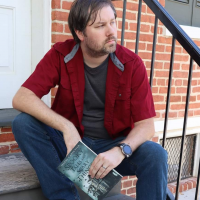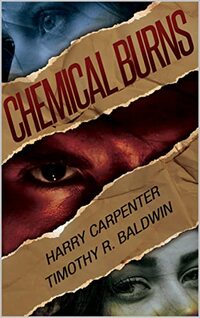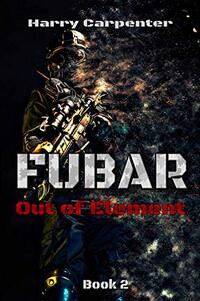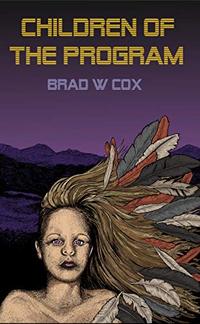Born in Baltimore, Maryland, what do you miss the most about your childhood?
Being born in Baltimore, it was such a busy place. We always had something to do, whether it was the aquarium, Inner Harbor, or some museum, it never had a dull moment. Other than being the feature piece of 'The Wire', Baltimore is also home to some great actors, and notorious writers, like Edgar Allen Poe. Looking at my childhood, I think I miss the naivety. Who doesn't? The ability to assume the world is small and problem-free? That a quick bike ride would solve everything. That's what I miss most about childhood. Then again, my childhood wasn't exactly the best part. The most carefree, yes. Adulthood has it's perks and I've managed to make a better adult life for myself than my childhood ever was. Treat yourself. Buy a cake for dinner, why not? You're an adult. I think this is a better time in my life.
What inspired you to begin writing in elementary school?
A few of my friends would always write short stories. Looking back, they were probably awful, but we thought they were fantastic at the time. One of my friends always wrote stories involving high school prom, monsters attacking, and chaos. We all seemed to enjoy the same things in terms of topic, but I don't think I ever stopped enjoying the really crazy stories. From there, I aced any report or paper I've ever had to write, and the art of writing just seemed to come easy for me. I just kind of went from there.
What made you a fan of horror, science fiction, and suspense?
How can you not be? I grew up on a wide range of those types, whether it be comedic horrors like Ghostbusters and Beetlejuice, or full-blown terrifying movies like The Grudge or House on Haunted Hill. I've enjoyed quite a bit of everything that Hollywood had to offer. There was always something to enjoy when reading a thriller or horror book as well. A lot of extra work seems to go into character development, as that person may inevitably be ripped away at a moment's notice by an evil clown or murderous duck. (I may have to pen a book about a murderous duck, now.)
What challenges did you face while publishing your book "Tales From An Ex-Husband" in 2019?
Where do I even begin with this book? Firstly, the challenge started with that eleven-year long relationship. If you want to get into that challenge, read the book. Initially, when I began to write the book, I wanted to tell my story. I had no idea how difficult that would be, to tell the truth. Getting into the mindset of where I was over two decades ago was hard enough. I had to recount the struggles, the fights, and the abuse, of course. I wanted to tell the story the way I would tell it in real life. I wanted to lace it with sarcasm, jokes, and lessen the blow of the reality of what was going on. My biggest obvious challenge was not using any names of the parties involved, as well as speaking with several lawyers about exactly what I had to do to protect myself legally.
How did your friends inspire you to start writing and believe that it will be interesting enough for anyone to read?
I feel like I've been more discouraged from writing than actually encouraged. Mostly from childhood friends. Thankfully, I've grown up past that inner circle and have made a much of great friendships in recent years. A lot of them beta read for me, as well as attend events and support me online. One friend in particular runs an event management company, Transcendent Events, and has hosted my books as the prizes for Halloween-themed events.
What challenges did you face while sharing about your troubled and eventful past?
Bring up a lot of the memories was hard. To get into the Ex-Husband book, I had to think as I did back then. It was much harder because, as opposed to my other books, it's non-fiction. These were the real things. There were no monsters, no metaphors. Just real, human situations. I think those stung the most to write.
What developed your passion for sci-fi, horror and comedy?
I think everything that I grew up reading and watching molded me into who I am. Sci-fi/horror and comedy seem to go hand in hand to make the best stories. If you can't laugh at a bad joke shortly after a gruesome horror scene, the story isn't being told right. I wanted to balance that out and tell stories that can make you chuckle while also making you cringe, the way they were intended to be told. I consider myself to be pretty funny, while also enjoying what makes horror tick. It was a no brainer to combine those two.
How did you come up with the title of your book, Memoirs of a Crazed Mind?
Funnily enough, it's a recycled title. Many long years ago, I had a rap career. Yes, get the laughter out. I know. I actually wrote a concept album of the exact same title, where each song followed a serial killer as he returned home to find that so much changed. Nobody he knew would talk to him. He couldn't understand why. The twist was that the character didn't know he was a killer, but that he assumed he was away for a while. The "old girlfriend" he visits turns out to actually be one of his victims, which was why the family was hostile and called the police. During his blackout recovery, he remembers that he escaped from an asylum, which is why he's now on the loose.
I know that sounds like an entirely different story, which may not be out of the cards to translate from song to book, but I took this book in a different direction. You're aware that the main character is a killer, and so is he. He's just here to tell you what's he's been doing the past few decades with his life, whether it was friends, family, jobs, or murder. It doesn't hold back. I've had retired police officers "question" me about some of the situations and how I can even think of these things. It was fun, in a dark way, to write.
Who inspired the character of Army Specialist Jason Chantry in "FUBAR: Blackout"?
I did. I know they say that every author puts a bit of themselves in the books, but this was 100% true for Chantry. His nonchalant views on doing things, coupled with his 'meh' attitude towards leading, all me. Even better, the rest of the cast is based on people I've served with. The badassery you see portrayed is just about how they were in real life. My favorite part of the Fubar book series, as it will unfold, is finding out which character people connected with. It's not always Chantry. Sometimes it's X, Martinez, Whelan, or someone else entirely! I also tried to keep the situation as grounded as possible. "What would we do in this situation" was a question I always asked. Given that I've made the main cast less soldier grunt type and more admin "get the coffee for the commander" type, it would make it more fun to be cracking jokes and laughing as often as possible while standing knee-deep in the carnage. It's how I and the real-life X, Martinez, and Dalog would cope.
Do you ever leave book reviews on other author's books? What do reviews mean to you?
I do. I actually fully support the small Maryland author circuit that's around here. I always try to get ahold of copies of their books and read them, especially if it's something I'd be into. I most recently read a book by author Timothy R. Baldwin called Bloodshot, which was a ride. It was about a family battling with drug addiction, without a moment to catch your breath, it was a wild ride. I left him a review, an honest one, and picked up another of his titles. If a book is good, I'll write rave reviews. I feel like as an author myself, I love to see reviews. I want to support other authors and never give them a bad review. Here's my secret to finding a review of mine online: If it's just a quick few words, less than two sentences, I wasn't a fan of your book, regardless of the four or five-star rating I gave. If I have two or three developed paragraphs, I thought it was genuinely fantastic and loved every second of it. I assume it works the other way around too.
When receiving a review, it's hard not to take every bad one personally. These are stories about people you know, situations you've lived through, etc. The bad reviews, at least the well-written ones, allow me to understand what I'm lacking. If I get a "bad book" review, and that's all it says, I have nothing to work with. If I get "Story was ok, could have used more scene-setting, character development, or fewer commas" or something along those lines, I can work with that. I'm guilty of being a comma-holic, just ask my wife when she proofreads.
How did being born in a city full of illustrious authors and performers inspire you?
Funny you bring this back up. Poe was and is a legend worldwide, but he's fully embraced in Baltimore. This guy made his mark here, between a football team name, restaurants themed after him, and more, it's such a shadow to live under in a sense. Not only that, but great filmmakers like John Waters are from around these parts. I can only hope to aspire to be half as great as them. I've been fine-tuning myself to hopefully be the next horror writer out of Baltimore, like Poe. Although I don't plan to go crazy and be found on a park bench wearing someone else's clothes, but the day is still early.
Was there ever a horror book that got under your skin? The one that creeped you out so much that you stopped reading horror for awhile (or forever)?
Not really. There is, however, a fine line between horror and distasteful. If you're writing smut just for the sake of drawing out some fantasy, I can't get into it. If it's done well, perhaps like the Hannibal Lecter or American Psycho stories, well, I'm in. They had a purpose to them. I've read some independent stories that were just "House of 1000 corpses" on steroids, and I couldn't finish it. There was no substance, no character, no heart. I don't get creeped out, I get discouraged. I haven't found a story that has given me nightmares in a very, very long time.
If you were writing a book titled "500 Tips to survive a Horror Movie", what are some of the tips you would put in it?
First, I'd channel my inner Jamie Kennedy from 'Scream.' My first step would be to just leave. Get out. Take off, and don't look back. That's the reason for 80% of these horror films as it is. The killer stalks the same area, but nobody leaves. That's why I love ghostly and demonic stories. You're screwed either way. That's my second tip: Don't piss off the demons. Leave the Ouiji board alone, please. I don't believe in them, but I also don't play with them on the off-chance I'm wrong. Paranormal Activity was proof of all of the things you shouldn't do. Everything that Micah did? Do the opposite. When it comes to zombies, aim for the head. Even if they're not that type of zombie, always give that a shot. Never hurts, right?
Which is the next book you are working on? When is it due for release?
I'm actually working on about five billion projects. Well, maybe not that many, but I have a lot. Currently, I have the sequel to Fubar: Blackout coming out. That one will be titled "Fubar: Out of Element." This story picks up the very next day after the events of book one, not really allowing for a time gap/jump. I'd like to have a 2021 release, but I'm not sure until I have a better handle with how everything is going out there. I also have Spooky Tales 2, which I'd like to slate for Fall 2021, just in time for Halloween. Unlike the first one which deals with demonic situations, book 2 is more ghost stories. I also have a story from my grandparents that I tossed in there. That should be entertaining enough, they've been dumping their ghost stories on me for years, it was a matter of time before I picked one out to write about.
When were you first introduced to AllAuthor and how?
I've managed to stumble upon AllAuthor from another writer. She and I exchanged various websites, trade tricks and tools. I've signed up for a billion different sites that claim to network authors with readers, as well as help with the process, and so on. Goodreads was one I found that seemed to be decent enough, but it's essentially a review site. AllAuthor stuck out from everything else I'd found online. The image tools, the "magic tool" which comes in handy to promote your books, as well as the cover contest. I think I've been around just about every corner of this site. The team is super responsive and helpful as well. For any new author coming up, I'd say an AA account is a must. If you can afford it, throw in for the premium account, too. The tweeting, the additional support of featured books, and more are well worth the payment, I think. I've since become an unofficial spokesperson for AllAuthor because I believe in everything I've used and seen on the page.












